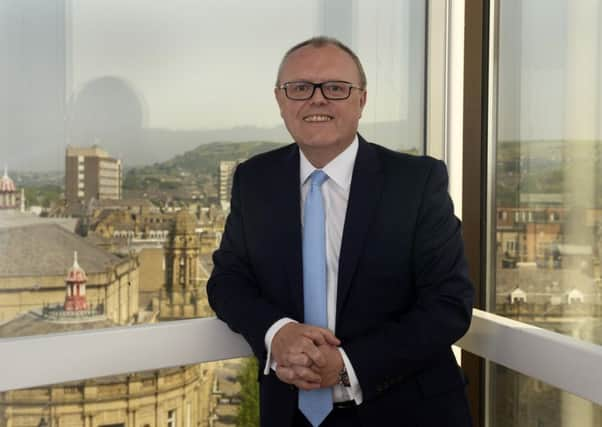Russell Galley: Working together to put end to financial exclusion


Clearly, this is an issue that needs to be tackled urgently. Many thousands of residents are currently struggling with financial exclusion and in recent years there has been a concerted effort by the public and private sectors to bring this number down.
One of the most effective ways of doing this is through the credit union movement.
Advertisement
Hide AdAdvertisement
Hide AdLast Monday, I was joined at the Lloyds Banking Group site in Leeds by Guy Opperman MP, the Parliamentary Under-Secretary for Work and Pensions and representatives from the Association of British Credit Unions, Leeds City Credit Union, Step Change and Leeds City Council to discuss the future of credit unions and how to promote greater financial inclusion for everyone in the region.
In the USA, more than half the population have used credit unions and it was great to be joined by Pearl Wicks, senior vice president of US based, Hope Credit Union.
Pearl was able to offer insights on how the credit union tackles similar issues on a much larger scale, her organisation having grown to now managing more than $300m in assets and operating across five states in southern USA.
In this country too, the credit union network has played a fantastic role in tackling financial exclusion. It delivers vital access to affordable lending, as well as mentoring and guidance on how to handle financial challenges. In Yorkshire there are 12 credit unions who combined have provided more than £39m in loans to more than 66,000 members. The private sector has a role to play too.
Advertisement
Hide AdAdvertisement
Hide AdAt Lloyds Banking Group, our Credit Union Development Fund has awarded nine Yorkshire and Humber credit unions £374,500 over the past five years, enabling them to provide much-needed responsible lending to local people and organisations.
But what more can be done to ensure everyone across Yorkshire has access to financial services?
Three main themes emerged from our discussions at the roundtable event.
Firstly, there is a need to build a network that brings together all the bodies working in this space. Across the region, there are banks, credit unions and debt advice services all tackling financial exclusion, but it is by working together in partnership that we can drive the biggest change.
Advertisement
Hide AdAdvertisement
Hide AdSecondly, a robust referral process that directs people to the services best placed to help them should be developed. Evidence suggests an established referral system allows a network of organisations to better serve the community and direct people to the help they need – meaning no-one falls between the cracks. This can be as simple as staff in bank branches knowing exactly who to refer people to speak to, or food bank volunteers being able to confidently point people to a debt advice organisation.
Finally, we need to help develop a digital system that allows people to seek support from their mobile phones.
The trend for online services is reaching every sector and research shows that being online gives people access to preferential rates for products and services.
It may also mean people turn away from quick-fix, high-interest lending and instead investigate more viable, long-term solutions.
Advertisement
Hide AdAdvertisement
Hide AdFace-to-face advice still has a role to play, for those who don’t have basic digital skills and for those who prefer traditional communication – we’d like to help develop a system that promotes both.
It’s clear to me that these are some simple steps the public and private sectors can take together, drawing on our collective strengths to create a system that everyone in Yorkshire can rely on.
By working side by side, we can make sure that we help Yorkshire and Britain prosper and create an environment where financial exclusion is a thing of the past.